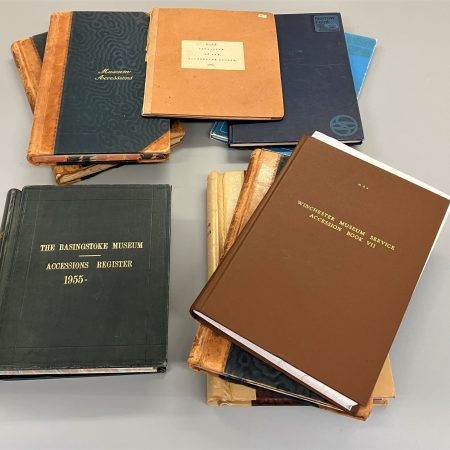| The project will create digital copies of Hampshire Cultural Trust’s 19th and 20th century acquisition registers, which list objects given to Winchester and other museums in the county. HAT has agreed to award £500 for this work
Hampshire Record Office will use their specialist equipment to produce a high-quality digital scan of each double-page spread. This register will then be assembled into a digitally viewable PDF version. These digital copies will be used as a working copy by staff and volunteers whilst enabling HCT to preserve the original registers in secure and appropriate storage. |
| The accession registers provide a handwritten record of the entry of every museum object into the collection. This practice continues to be a core element of collections management and a requirement outlined by the Collections Trust SPECTRUM standards and the museum Accreditation Scheme.
Whilst today all new acquisitions to HCT’s collection are entered onto the digital database, in the past these registers served as the only record for the collection. The provenance of an object is crucial in both preserving the stories and unlocking the stories that the objects hold. Without knowing the origins of an object, it becomes increasingly difficult to determine how relevant it is to the Collections. Being able to have this information to hand always goes a long way to improve decisions being made. If the object is being considered for display for example, being able to ensure that the team have the right story to tell for the object ensures that the public is being as informed as possible. With a collection of over 2.5 million objects, HCT is working hard to improve access and digitisation in line with their documentation plan. The main objectives are to improve accessibility across the vast collections cared for, and digital accession registers makes the processing of auditing collections considerably easier.
|

